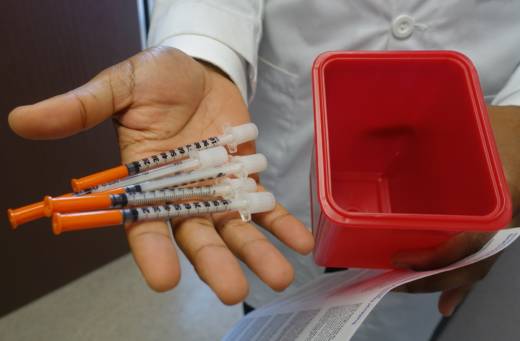But that, too, was thwarted by a lawsuit filed by the county and a host of individual cities — including Costa Mesa, Orange and Anaheim — to keep the mobile exchange from operating, citing similar public health concerns. In November, a San Diego County Superior Court judge sided with the county, issuing a temporary injunction to keep the program shuttered.
In the ruling, Judge Joel Wohlfeil praised the exchange for its devotion to harm reduction, but questioned whether the program had enough staff members to safely provide the necessary services, a requirement stipulated in California's Health & Safety Code.
"The risk of harm, including but not limited to needle stick injuries from syringe litter, is substantial," Wohlfeil said in his decision.
But OCNEP argues that it offers an essential public health service in a county where opioid abuse has risen significantly in recent years. A 2017 report from the Orange County Public Health Agency found that opioid-related emergency visits in the county more than doubled since 2005.
Advocates with OCNEP also point to public health studies showing that needle exchanges generally do not promote more drug use, as critics suggest, but instead offer safer alternatives and pathways to rehabilitation.
A growing number of cities in California, including San Francisco, Los Angeles and Oakland, have embraced needle exchanges as an effective method of preventing disease and helping to stem addiction.
"This idea that syringes have increased as OCNEP started to operate is really more of a coincidence rather than a correlation," said Mahan Naeim, who serves on the program's steering committee. "It just happens to be that OCNEP is operating in the midst of the biggest opioid epidemic to hit the United States."
Closing these exchanges, advocates like Naeim warn, will likely result in more addicts reusing and sharing needles, increasing the spread of life-threatening blood-borne illnesses like HIV and hepatitis C.
Since the exchange closed, Naeim said he and his colleagues have taken to driving around the county to check on their former clients, even if they can't legally offer them clean needles.
"When you work at a syringe exchange, you see every day how important your services are and what a difference it makes when someone doesn't have to reuse a needle," he said. "And to have a bunch of talking points and social stigma combat something that is so well [medically] accepted is frustrating."

